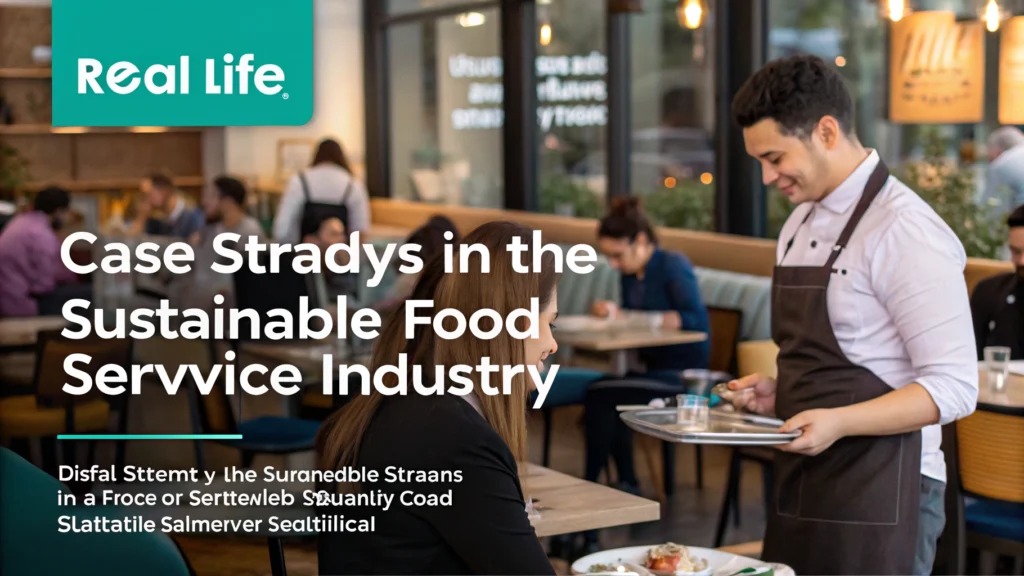
Einführung
In today’s climate-conscious world, the hospitality industry stands at a crossroads. The urgent transition away from single-use plastics has sparked a revolution in sustainable alternatives, with sugarcane and paper straws emerging as leading contenders. But which solution truly delivers on its environmental promises while meeting practical business needs? Let’s dive into the science, economics, and real-world performance of these alternatives.
The Environmental Edge: Breaking Down the Science
Sugarcane Straws: Nature’s Innovation

Picture a sugarcane field after harvest – what most see as agricultural waste becomes an innovative solution for sustainable dining. These straws tell a compelling story:
- Decompose 90-95% within just 90 days in standard composting conditions
- Slash greenhouse gas emissions by 70% compared to plastic alternatives
- Save 60% more water than paper production while upcycling agricultural waste
Paper Straws: The Complete Picture

While paper straws seem intuitively eco-friendly, their environmental impact requires closer examination:
- Decomposition varies dramatically from 30-180 days
- Each 100 straws consume 1.5 gallons of precious water
- Despite recycled content claims, production continues to drive deforestation
The Business Case: Beyond Initial Costs
Sugarcane Economics
Smart businesses are discovering that initial costs don’t tell the whole story:
- Premium pricing ($0.03-0.05 per unit) offset by extended 4-6 hour lifespan
- 15-20% lower total ownership costs through reduced replacement and storage
- Growing markets offer tax incentives for sustainable choices
- Customer loyalty boost from superior experience
Paper’s Hidden Price Tag
The seemingly attractive initial cost ($0.02-0.04 per unit) masks significant operational challenges:
- Rapid deterioration demands frequent replacement
- Expanded storage requirements eat into profits
- Customer complaints about degradation impact reputation
Real-World Performance: The Customer Experience
Sugarcane Superiority
Field testing reveals impressive capabilities:
- Withstands temperatures from frozen drinks to hot coffee (-20°C to 90°C)
- Maintains structural integrity for 4-6 hours
- Zero taste interference
- Compact storage footprint
Paper Limitations
Practical challenges include:
- Limited temperature range (0°C to 65°C)
- Deteriorates within 30-60 minutes
- Reported taste alterations
- Special storage requirements
Strategic Implementation Guide
Matching Solutions to Service Styles
Sugarcane Straws Excel In:
- Fine dining establishments
- Luxury hotels
- Craft cocktail bars
- Healthcare settings
- Educational facilities
Paper Straws Best Suit:
- Fast-food operations
- Grab-and-go venues
- Short-term events
- Basic beverage service
Making the Switch: A Four-Step Process
- Evaluate Your Operation
- Map current straw usage patterns
- Calculate environmental impact
- Review storage capabilities
- Check local regulations
- Plan Your Transition
- Develop staff training
- Optimize storage systems
- Create customer education materials
- Establish disposal protocols
The Clear Choice
The evidence speaks volumes: sugarcane straws represent the future of sustainable food service. They deliver superior environmental benefits, long-term cost savings, and exceptional customer experience. For businesses serious about sustainability without compromising quality, sugarcane straws offer the ideal solution.
Ready to make the switch? NatureBioEco provides premium sugarcane straws meeting the highest quality and sustainability standards. Contact us at max@naturebioeco.com or +86 13524105790 for a customized solution that fits your business needs.

Analysis based on 2024 market data and environmental research. Contact our team for current pricing and information.
Häufig gestellte Fragen
What are the environmental benefits of sugarcane straws?
Sugarcane straws decompose 90-95% within just 90 days in standard composting conditions, slash greenhouse gas emissions by 70% compared to plastic alternatives, and save 60% more water than paper production while upcycling agricultural waste.
What are the business benefits of sugarcane straws?
Sugarcane straws offer premium pricing offset by extended lifespan, lower total ownership costs, tax incentives for sustainable choices, and a boost in customer loyalty from superior experience.







